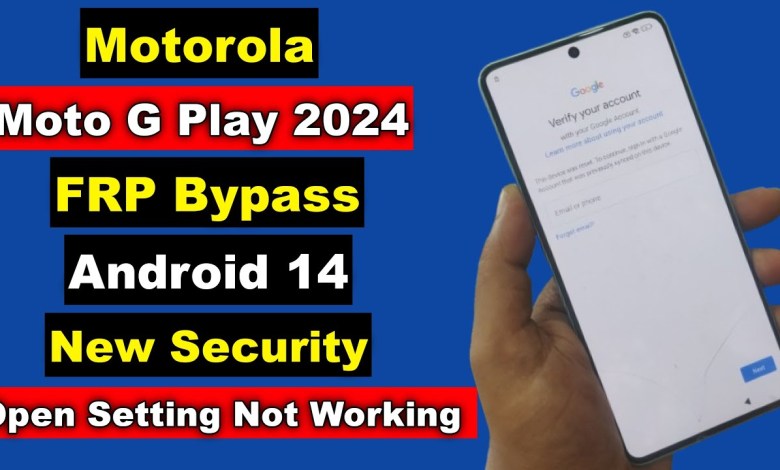How to Bypass FRP on Motorola Moto G Play 2024 with Android 14 Without hassle

Motorola Moto G Play 2024 Android 14 FRP Bypass Without PC | Motorola Moto G Play 2024 FRP Unlock
The Power of Music: How It Affects Our Emotions and Behavior
Music has been a powerful tool for expressing and evoking emotions for centuries. From ancient Indigenous chants to modern-day pop songs, music has the ability to influence our mood and behavior in ways that words alone cannot. In this article, we will explore the profound impact that music can have on our emotions and behavior, and how it has the power to bring people together and create a sense of unity.
The Emotional Impact of Music
Music has the ability to evoke a wide range of emotions, from joy and excitement to sadness and nostalgia. Studies have shown that certain musical patterns and melodies have the power to trigger specific emotional responses in listeners. For example, upbeat and fast-paced songs are often associated with feelings of happiness and energy, while slow and melancholic tunes can bring about feelings of sadness and introspection.
One of the reasons why music is so effective at eliciting emotions is due to its ability to activate various regions of the brain that are responsible for processing emotions. When we listen to music, our brains release neurotransmitters like dopamine and serotonin, which are known to enhance feelings of pleasure and happiness. This is why certain songs can make us feel good and uplifted, while others can bring us to tears and evoke deep emotions.
The Behavioral Influence of Music
In addition to affecting our emotions, music also has the power to influence our behavior in significant ways. For example, studies have shown that listening to upbeat and energetic music can increase motivation and improve physical performance during exercise. This is why many athletes and gym-goers often listen to music while working out, as it can help them push through fatigue and achieve their fitness goals.
Music can also have a profound impact on our social behavior and interactions. When people listen to music together, they often experience a sense of bonding and connection that can strengthen relationships and create a sense of unity. This is why music is commonly used in social settings like parties, concerts, and events, as it can help bring people together and create a shared experience that transcends language and cultural barriers.
The Healing Power of Music
In addition to its emotional and behavioral effects, music has also been recognized for its therapeutic benefits in healing and wellness. Music therapy is a growing field that uses music as a tool to help individuals cope with various mental and physical health conditions, such as anxiety, depression, and chronic pain. Studies have shown that listening to music can reduce stress levels, improve mood, and promote relaxation, making it a valuable tool for promoting overall well-being.
Music therapy is often used in hospitals, rehabilitation centers, and mental health facilities to help patients recover and improve their quality of life. By incorporating music into therapy sessions, individuals can explore and express their emotions in a safe and supportive environment, leading to improved emotional regulation and mental health outcomes.
Conclusion
In conclusion, music is a powerful tool that can greatly impact our emotions and behavior in profound ways. From its ability to evoke specific emotions to its influence on our social interactions and well-being, music plays a significant role in shaping our experiences and connecting us to one another. By recognizing the power of music and exploring its therapeutic benefits, we can harness its potential to improve our mental health, enhance our relationships, and create a sense of unity in an increasingly divided world.
#Motorola #Moto #Play #Android #FRP #Bypass













